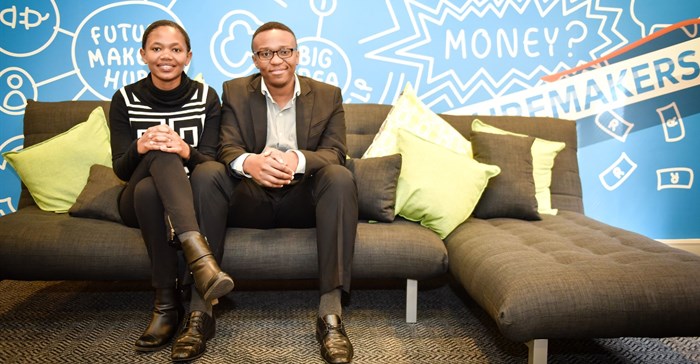#EntrepreneurMonth: Persistence propels businesses forward
We interviewed Sibanda to find out more about how they started their entrepreneurial journey, what it takes to become a successful entrepreneur in the technology space, and why he believes entrepreneurship is important in a country such as South Africa.

 You sound like quite the entrepreneurs! What are the stories behind Tuse and Millbug?
You sound like quite the entrepreneurs! What are the stories behind Tuse and Millbug?
Millbug was started in 2012 by my partner Thulisile Volwana and I. I had listened to a talk by Fred Roed and he mentioned the opportunities in e-commerce. We registered the business that very day.
We got to work building an e-commerce site soon thereafter and promptly got nominated for an SA E-commerce Award. We soon realised that our target market made use of mobile devices to access the internet and that people are more inclined to buy tactile products from larger screens.
We then thought of importing cheap tablets from Alibaba to solve this problem and realised that South Africa is a very litigious country with legislation to protect local production and the local consumer. Undeterred, we found that, if we designed our own tablet and had it manufactured by a contract manufacturer we would succeed - so we did just that. We developed a 23-page schematic of the device, converted it to a gerber file and sent that to our contract manufacturer.
Once that was done, we learnt that we had to have a very clear USP (unique selling point) and clearly articulated value proposition that made our small startup different from the slightly better-capitalised incumbents. We then decided to make our device solar powered.
With this cool device, we quickly realised that connectivity would be an issue so we created a startup that has developed technology that allows people to communicate and access content with or without the use of data. We called the startup Tuse and got into Founders Space and got selected as one of the 10 most disruptive startups in the world ant the Global Technology Symposium in San Francisco. In a nutshell, all our companies are solutions to problems we personally experience.
 What did it mean for your business to be selected for the Founders Space programme and why are accelerators important for entrepreneurs?
What did it mean for your business to be selected for the Founders Space programme and why are accelerators important for entrepreneurs?
Being included in the Founders Space Accelerator raised our profile and allowed us to raise a small pre-seed round to validate our assumptions - which has gone incredibly well. Accelerators, in our experience, have helped shift our focus from trying to impress investors to creating or capturing and delivering value to our clients and our channel partners which would, in turn, attract investment.
Accelerators help clarify the value chains involved in commercialising your innovation and assessing whether or not scale is possible.
 What do you believe are the traits an entrepreneur needs in order to succeed?
What do you believe are the traits an entrepreneur needs in order to succeed?
Entrepreneurs have to have the ability to unlearn and relearn but above all, persistence is the lever that has propelled our businesses forward time and time again.
 Some of the biggest struggles and major highlights on your journey?
Some of the biggest struggles and major highlights on your journey?
Our biggest struggles, I believe, were largely self-inflicted. We never learnt, applied and iterated fast and effectively enough in the beginning. Now that we have made a very conscious effort to drastically improve this, we find that we've opened up more access to market, funding opportunities, and introductions to some of the most talented experts in the world to work with us.
 Why would you encourage someone to become an entrepreneur?
Why would you encourage someone to become an entrepreneur?
I would encourage someone to be an entrepreneur for the adrenalin this rollercoaster ride can have and also for the development of above-average discipline. It can go from incredibly rewarding to frighteningly scary and back in a day - it's a really neurotic but worthwhile exercise all at the same time.
 What is the importance of entrepreneurship - especially in a country such as South Africa?
What is the importance of entrepreneurship - especially in a country such as South Africa?
Entrepreneurship is a key driver of employment and innovation - we are in desperate need of both if we are to cure some of our social ills.

























